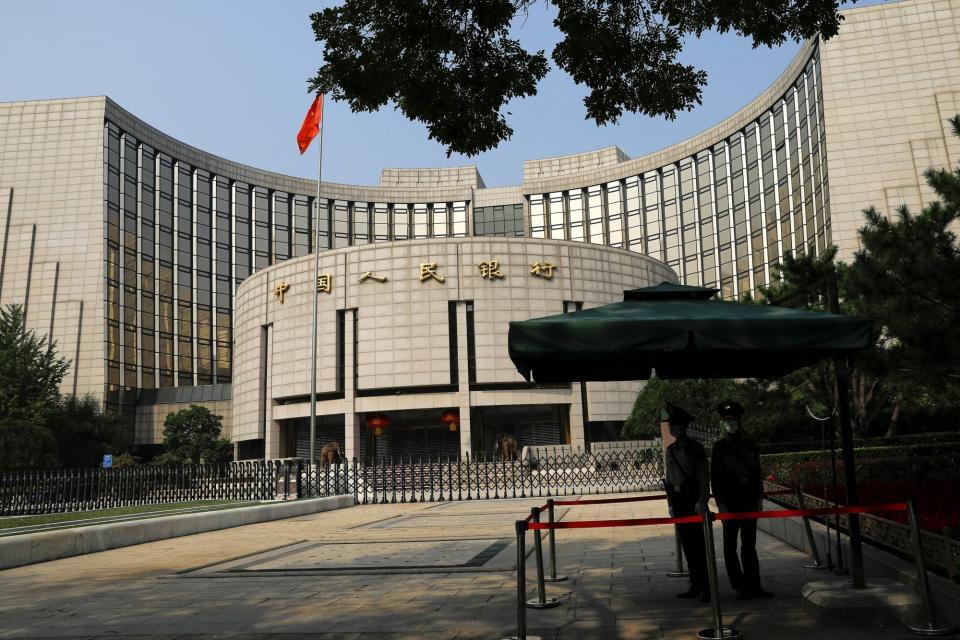China’s commercial banks are raising questions about whether the central bank’s recent cut to outstanding mortgage rates will be sufficient to hold back a flood of mortgage prepayments and help protect bank margins.
The People’s Bank of China (PBOC) unveiled new guidance last month requiring commercial banks to lower interest rates on outstanding mortgages for first-home loans. The new rates, which will be effective starting on September 25, aimed at stimulating consumption while also reducing the incentive for households to pay down their mortgages early, which had led to a decline in bank profits.
“Lowering outstanding mortgage rates will help alleviate the interest burden on households,” a spokesperson for the PBOC told local media on Wednesday, adding that the new rules have already led to a decline in prepayments, and will help improve household balance sheets and consumer confidence.
Do you have questions about the biggest topics and trends from around the world? Get the answers with SCMP Knowledge, our new platform of curated content with explainers, FAQs, analyses and infographics brought to you by our award-winning team.
The measure has led at least some homebuyers to reconsider their mortgage prepayments.

Officers stand guard in front of the headquarters of the People’s Bank of China, the central bank, in Beijing on September 30, 2022. Photo: Reuters alt=Officers stand guard in front of the headquarters of the People’s Bank of China, the central bank, in Beijing on September 30, 2022. Photo: Reuters>
Kang Chao, an insurance company employee in Changsha, in southeast China’s Hunan province, told the Post that a new mortgage rate of 4.2 per cent could help his family free up about 1,700 yuan (US$234) each month to cover living expenses.
“[My wife] and I both took out mortgage loans in 2018 and 2019, when the interest rates were as high as 5.15 per cent,” he said. “Each month, we need to pay about 9,800 yuan, and this leaves us no more than 3,000 yuan to spend on everything else.
“So we were under a lot of pressure to pay off our debt quickly, especially after we had a child. At one point, we were even considering selling one of our houses. Now that the new policy is out, we feel somewhat relieved.”
The Chinese central bank has been cutting mortgage rates on new loans since last year to boost home sales. But the policy move encouraged prepayments as homebuyers, saddled with expensive loans from previous years, began tapping into their personal savings and applying for other forms of cheap loans to pay off their comparatively expensive outstanding mortgages early.
An estimated US$700 billion in mortgages, representing around 12 per cent of the country’s total mortgage balance, has been prepaid since 2022, according to analysts.
Chinese commercial banks could see an earnings decline of up to 5 per cent this year if the prepayment wave persists, according to analysts’ estimates. However, if banks refinance home loans at lower rates, their net profits could also drop by 1 to 5 per cent, a report by Fitch Ratings said.
Early repayment is a behaviour driven by interest rates, and as the gap between new and outstanding mortgage rates narrows, the incentive to pay down mortgages early will start to decrease, said Gary Ng, senior economist for Asia-Pacific thematic research at Natixis.
“However, it does not mean [lowering outstanding mortgage rates] is a panacea for boosting China’s household confidence in properties,” he said. “The confidence issue is complex, and it will take more than rate cuts to repair. Although early repayment will ease, mortgage growth is not likely to see a significant jump.”
A banking analyst at the Beijing branch of a commercial bank echoed this view, telling the Post that “a substantial decrease” in prepayment is unlikely in the short term, as many homebuyers still want to decrease their financial liabilities in a declining economy.
“The benchmark interest rate is now at 4.5 per cent, which is higher than the returns of most wealth-management products on the market,” said the source, who declined to be named as she was not authorised to speak to the media. “People who have cash on their hands will definitely want to pay down their mortgages early.”
Things have changed since “back in the day”, she said, when investing in the stock market or wealth-management products – instead of using cash to pay off mortgages – could yield returns of up to 30 per cent.
“A lot of these products were tied to real estate investment trusts, where the investor’s money would be used to fund projects run by private property developers,” she said. “But now that there is a crisis in China’s property market, these high-risk, high-return investment options are no longer available.”
This article originally appeared in the South China Morning Post (SCMP), the most authoritative voice reporting on China and Asia for more than a century. For more SCMP stories, please explore the SCMP app or visit the SCMP’s Facebook and Twitter pages. Copyright © 2023 South China Morning Post Publishers Ltd. All rights reserved.
Copyright (c) 2023. South China Morning Post Publishers Ltd. All rights reserved.


